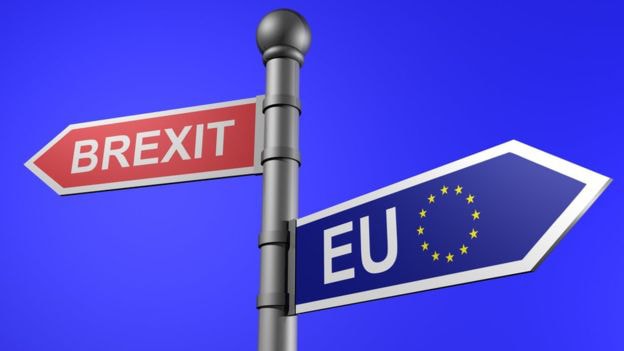Predicting a 'no-deal Brexit earthquake'
Forecasts compiled by the UK Cabinet Office set out the most likely consequences of a “no-deal Brexit earthquake”.
Britain would face fuel, food and medicine shortages if it leaves the European Union without a deal, disrupting border operations and risking the re-establishment of a hard border with the Republic of Ireland, according to a Cabinet Office document detailing the consequences of a “hard Brexit” as the country continues to be torn between multiple scenarios.
|
| Illustration: BBC. |
The UK Times said that the forecasts compiled by the UK Cabinet Office set out the most likely consequences of a “no-deal Brexit” instead of the “worst case scenarios” as before. Accordingly, the UK leaving the European Union without a deal would disrupt operations at border crossings, especially the border between the UK and France, through which 85% of the country’s imported cars pass.
Disruption at the border is likely to last up to three months before traffic flows improve. The root cause of the problem is the hard border between Northern Ireland and the Republic of Ireland. Current government plans to prevent customs checks will not work.
This is a rare document that provides the most comprehensive assessment yet of Britain’s preparedness to prevent the risks to national infrastructure in the event of a no-deal exit from the EU. The British government is facing a lot of pressure, both from within and without, including the risk of a constitutional crisis and an uncompromising confrontation with the European Union.
Prime Minister Boris Johnson has repeatedly said he will leave the bloc on October 31, with or without a deal, unless the bloc agrees to renegotiate the divorce agreement. After more than three years of Brexit looming over all EU issues, the bloc has steadfastly refused to reopen negotiations on the divorce agreement, including the final backstop clause to prevent the risk of having to re-establish a hard border between Northern Ireland and the Republic of Ireland.
Prime Minister Boris Johnson will meet the leaders of France and Germany next week to reiterate his country's stance that the British Parliament will not be able to stop Brexit and that a new deal must be reached if Britain is to avoid leaving the EU without a deal:
“Europe has so far refused to compromise, despite the withdrawal agreement having been rejected three times by the British Parliament. And so the longer this situation continues, the more likely it is that we will be forced to leave the EU without a deal. That is not what I want or aim for. But we also need our European friends to compromise,” said Prime Minister Boris Johnson.
The British Prime Minister is facing increasing pressure at home as the leader of the opposition Labour Party, Jeremy Corbyn, this week openly expressed his intention to "overthrow" Prime Minister Boris Johnson and is gathering support from domestic parties. The goal is to delay Brexit and prevent a no-deal Brexit. However, it is not clear whether lawmakers can agree on using Parliamentary powers to prevent a no-deal Brexit scenario. If it happens, this will be the first event in the UK since World War II.
Opponents of a “hard Brexit” say it would be a disaster for what has been hailed as one of the West’s most stable democracies. A disorderly exit would hurt global growth, roil financial markets and undermine London’s position as the world’s preeminent financial center. Supporters say there may be short-term disruption from a no-deal scenario, but the economy would thrive if freed from what they see as a failed experiment in integration that left the EU lagging behind China and the United States.





